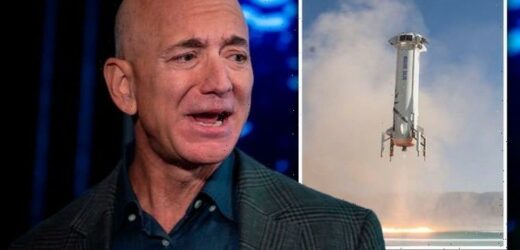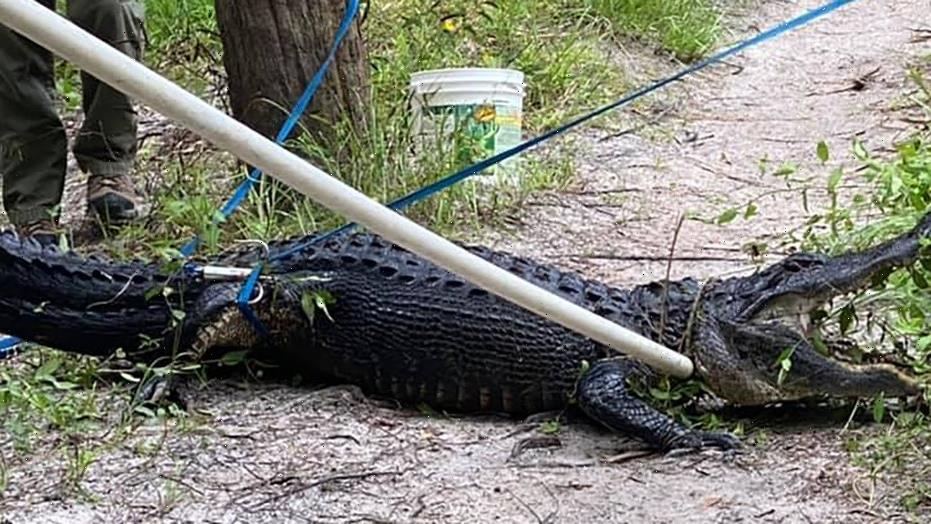Blue Origin prepare for first human flight on New Shepard
We use your sign-up to provide content in ways you’ve consented to and to improve our understanding of you. This may include adverts from us and 3rd parties based on our understanding. You can unsubscribe at any time. More info
Jeff Bezos, the mastermind behind the Amazon empire, will become the second billionaire to fly into space aboard a privately-built spacecraft. The Blue Origin founder was upstaged by Virgin mogul Richard Branson earlier this month but the billionaire and his three crewmates are ready to earn their astronaut wings today (July 20) – the 52nd anniversary of the Apollo 11 Moon landing. Today’s launch marks another milestone for the fledgling space tourism industry as one of the four crewmembers has paid for the privilege of flying into space.
Although civilians have flown to space before, never before has it happened on a privately-built spacecraft.
According to Blue Origin and rival company Virgin Galactic, these advancements are a sign of affordable spaceflight soon becoming available to the masses.
Blue Origin’s mission, after all, is to build “a future where millions of people are living and working in space to benefit Earth”.
And ahead of his historic flight on July 11, Sir Richard proudly boasted “space belongs to all” and praised his company’s efforts in advancing the cause of space tourism.
Many experts, however, are unconvinced by the bold promises and have instead argued the costs of going into space are too astronomical for the average person to even consider.


Dr Ian Whittaker, a Senior Lecturer in Physics at Nottingham Trent University, thinks it is unlikely these private companies are about to make spaceflight accessible.
Virgin Galactic, for instance, has charged a staggering £182,900 ($250,000) per seat on its dazzling spaceplane.
And an anonymous auction winner – who will not fly today – has paid more than £20million ($28million) to fly on New Shepard.
Compare this to the average household income in the UK – £29,000 in 2020 – and it is clear very few can afford to go to space right now.
Dr Robert Massey, astronomer and Deputy Executive Director of the Royal Astronomical Society, believes the hype and excitement surrounding these flights belies the bigger picture – space tourism is a “rich kids playtime”.
The expert told Express.co.uk: “I think there is a lot of hype around space tourism and we are very, very many years from this being a kind of market that the vast majority of people would have any ability to access.
“When you look at the ticket prices – even Virgin Galactic which is the cheapest one – clearly the overwhelming majority of people are not going to have $250,000 to have access to space.
Blue Origin: Jeff Bezos discusses his hopes for space travel
“And even if you are wildly optimistic about the way prices come down, it doesn’t seem that would change significantly in the short term.”
Spaceflight is expensive, and the bigger your rocket and the heavier your payload is, the more expensive it gets.
One way in which companies have been trying to cut down the costs of spaceflight is by developing reusable launch vehicles.
Elon Musk’s SpaceX has seen a great amount of success in the field, with his fleet of Falcon 9 rockets constantly dipping in and out of Earth’s atmosphere.
Being able to reuse a rocket after each flight lowers the overall cost of launch and some experts think will completely revolutionise the industry.
Blue Origin’s New Shepard follows a similar flight pattern to SpaceX’s Falcon 9.


The rocket will vertically blast off into the upper parts of the atmosphere before falling back down for a soft landing in West Texas.
One caveat of this model is the rocket does not fly into orbit – something SpaceX does regularly.
Instead, New Shepard will fly its crew above the internationally recognised border of space 62 miles up, the so-called Karman line, before coming back down to Earth.
This is another key fact Dr Massey thinks gets lost in all of the hype surrounding the Blue Origin and Virgin Galactic flights.
He believes there is a lot more to space and space exploration than just the upper reaches of the atmosphere – a message that does not come through in the respective companies’ marketing.
The astronomer said: “It’s definitely a rich kid’s playtime and in that sense, it’s very much about access for the super-wealthy to space notionally.
“The other thing about it, I would say, that of course what they’re doing is suborbital flights, which means they’re not going into space in the sense that you might imagine where you think about people servicing the space station or spending time in orbit.”
That might change in the future, the expert conceded, but crewed spaceflight has already achieved much greater milestones.
When Virgin Galactic flew its crew of four above an altitude of 50 miles this month, the world celebrated.
It should of course be pointed out Yuri Gagarin, the first man in space, already flew twice as high on Vostok 1 in 1961.
To further put the flight in perspective, seven people are presently orbiting the planet aboard the International Space Station (ISS) – more than 253 miles above the planet’s surface.
Source: Read Full Article


